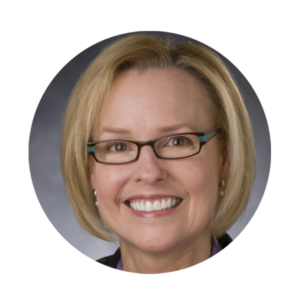Autism is a heterogeneous neurodevelopmental condition, shaped by diverse developmental pathways, co-occurring conditions, and individual lived experiences. Current research and clinical practice increasingly emphasise this complexity, moving away from one-size-fits-all models to more nuanced and context-sensitive understandings.
‘Unfolding Autism – An International Expert Conference’ brings together four leading experts to explore distinct yet interconnected topics: early detection, co-occurring mental health challenges, participatory approaches, and evidence-based supports for adolescents and young adults. With a focus on practical tools, emerging models, and inclusive innovation, this conference is essential for professionals working to improve outcomes for autistic children, teens, and their families.
A phenomenal line-up includes: Professor Sven Bölte, Professor Geraldine Dawson, Associate Professor Georgia Pavlopoulou, and Professor Susan White.
Booking
Sign up at this link or on the Book Now button at the top of the screen, and complete the form that follows. You’ll then receive an email confirmation and a link to the webinar, plus we’ll send you a calendar reminder nearer the time. Delegates will have exclusive access to recordings for 90 days after the event, together with slides. Plus you will get a personalised CPD certificate via email.
- ACAMH Members MUST login to book onto the webinar in order to access this webinar and get a CPD certificate
- Non-members this is a great time to join ACAMH, take a look at what we have to offer, and make the saving on these sessions
EARLY BIRD £99 for ACAMH Members (Print, Online, Concession) Join now and save (£119 from 31/05/25)
EARLY BIRD £159 ACAMH Learn Account holders (£179 from 31/05/25)
EARLY BIRD £159 Non Members (£179 from 31/05/25)
£5 ACAMH Undergraduate/Postgraduate Members
FREE LMIC Members
Don’t forget as a charity any surplus made is reinvested back as we work to our vision of ‘Sharing best evidence, improving practice’, and our mission to ‘Improve the mental health and wellbeing of young people aged 0-25’.
About the talks
Dr. Susan White – STEPS to a Brighter Future for Autistic Adolescents and Young Adults
Transition-age youth on the autism spectrum face unique challenges related to independent living. In partnership with the autistic community and field experts, we developed a therapeutic program to promote independence. The Stepped Transition to Employment and Postsecondary Education Success (STEPS) Program targets skills mechanistically linked to greater autonomy and independence. We will present on STEPS, including the research on impact conducted to date, as well as summarize some the conceptual model, and demonstrate some of the specific strategies used in STEPS.
Learning outcomes
1. To learn about challenges specific to autism during transition to adulthood
2. To learn strategies to support transition to greater independence
3. To learn how to support caregivers and loved ones through the transition journey
Professor Geraldine Dawson – New directions in the early detection and intervention in autism
Universal autism screening can reduce disparities in access to early diagnosis and intervention, which is associated with improved quality of life. Although autism screening questionnaires are useful, mounting evidence suggests that this approach has limitations, including lower accuracy when used in real-world settings. This talk will focus on novel digital health approaches to autism screening and discuss recent studies on the benefits of naturalistic developmental behavioral interventions for improving outcomes for autistic children.
Learning outcomes
1. Describe early manifestations of autism in infants and toddlers
2. Understand traditional and digital health methods for early screening for autism
3. Describe empirically supported methods for early autism intervention
Professor Sven Bölte – From diagnosis-focus to a holistic understanding and participation-focus in autism and ADHD using WHO’s ICF system
Although there is consensus today that autism and ADHD are heterogeneous and dimensional phenomena that require individual understanding and tailored support across society, much thinking and action is still predominantly based on the biomedical model according to ICD-11 and DSM-5. This approach not only limits communication between professionals, neurodivergent people and their families but also hampers and delays appropriate actions. Categorical diagnoses alone convey little information for planning individualised interventions, they are not solution-oriented and lack information about resources and positive and negative environmental impact. The WHO’s International Classification of Functioning (ICF) allows a holistic assessment of a person’s strengths and challenges, activities and participation, facilitating and hindering environmental factors and personal factors across clinical, educational, social and everyday spaces. This lecture will introduce to the ICF model, its philosophy, advantages, and application in practice. There will be a particular focus on the adaptation of the ICF for efficient use in autism and ADHD, and the research it builds on.
Learning outcomes
1. Get to know WHO’s ICF system
2. Understand the advantages and limitations of the ICF
3. Learn about ICF application in autism and ADHD
4. Linking ICF assessment to intervention planning
Dr. Georgia Pavlopoulou – Situating “emotion regulation” in autism and ADHD: Learning from neurodivergent adolescents what helps them to prevent and ‘get through’ upsetting experiences
This talk draws directly from the RESTAR research project, which centres the voices of neurodivergent adolescents to better understand how they experience and manage emotional distress. Based on interviews with 57 young people aged 11–15 with diagnoses of autism, ADHD, or both, the research moves beyond traditional, adult-led interpretations of emotional dysregulation and instead highlights how neurodivergent youth themselves make sense of and cope with difficult emotions. The findings reveal a range of challenges, including feelings of social disconnection and alienation, masking of emotions, self-doubt and embarrassment, and sensory overwhelm. Autistic participants often described a sense of not belonging, while those with ADHD spoke of the emotional impact of feeling controlled or misunderstood. Young people with a dual diagnosis reported more complex, often more intense emotional experiences that reflected both sets of difficulties. Alongside these challenges, participants also described the strategies and conditions that support emotional wellbeing: stable routines, genuine acceptance, trusting relationships, autonomy in choosing self-regulation strategies, and the ability to express distress without judgement. These insights offer practical guidance for clinicians, educators, and professionals working with neurodivergent youth. By shifting the focus from behaviour to lived experience, the RESTAR project highlights how inclusive, affirming environments can reduce distress, increase resilience, and lead to better long-term outcomes. Attendees will leave with a deeper understanding of what emotional support can look like when it is grounded in the voices of young people themselves—and how this approach can transform practice across clinical, educational, and care settings.
Learning outcomes
1. Understand emotional regulation from the lived experience of neurodivergent youth
2. Identify practical, strengths-based strategies to support wellbeing
3. Create environments where emotional safety, trust, and inclusion are prioritised
4. Challenge outdated views of behaviour that may unintentionally pathologise distress
About the speakers
Dr. White is dedicated to the dissemination and implementation of clinical science and evidence-based practice to rural, diverse, and underserved communities. She has worked as a clinician in private practice and in residential inpatient settings, cementing her belief in the importance of research and evidence-based practice being mutually informative. She has been recognized publicly for her dedication to mentoring and inclusive education efforts. She is a Fellow of the Association for Behavioral and Cognitive Therapies (ABCT), the American Psychological Association (APA), and Division 53 of APA, the Society of Clinical Child and Adolescent Psychology (SCCAP). Dr. White is also board-certified in Clinical Child and Adolescent Psychology. Dr. White is past president of the Society for the Science of Clinical Psychology (SSCP), and the 2021 recipient of the SSCP Distinguished Scientist Award. Her research has been funded by the National Institutes of Health, the Patient Centered Outcomes Research Institute, the US Department of Defense, and private foundations. She is co-author of several treatment curricula for youth with autism spectrum disorder (ASD) including the Emotion Awareness and Skills Enhancement (EASE) Program, and developer of the Multimodal Anxiety and Social Skills Intervention (MASSI) and Stepped Transition in Education Program for Students with ASD (STEPS). She is also widely published in high-impact scientific journals and has authored or co-edited several books, including the Oxford Handbook of Clinical Child and Adolescent Psychology.

Geraldine Dawson is the William Cleland Distinguished Professor of Psychiatry and Behavioral Sciences and Professor of Pediatrics and Psychology & Neurosciences at Duke University. Dawson is Founding Director of the Duke Center for Autism and Brain Development. She served as President of the International Society for Autism Research. She is a member of the American Academy of Arts and Sciences and received the American Psychological Association Distinguished Career Award and Association for Psychological Sciences Lifetime Achievement Award. Dawson authored >400 papers and 13 books. With Sally Rogers, Dawson co-created the Early Start Denver Model, an empirically-validated autism intervention used worldwide.

Sven Bölte,Ph.D., is professor at the Department of Women’s and Children’s Health, at Karolinska Institutet, and senior clinical psychologist at the Division of Child and Adolescent Psychiatry, Center for Psychiatry Research, Region Stockholm, in Sweden. He directs the Center of Neurodevelopmental Disorders (KIND). Sven is co-chair och the European Network of ADHD, chief editor of the Scandinavian Journal of Child and Adolescent Psychology and Psychiatry, and board member of Autism Sweden. He has received several recognitions, such as Fellow of the International Society for Autism Research and has published more than 500 articles with 40,000 citations (H-index 97).

Dr. Georgia Pavlopoulou is an associate professor in developmental psychology and expert in neurodiversity and mental health. She directed a large NHS program which trained over 5000 trainers to build local capacity in services to improve autistic people’s mental health outcomes. Georgia leads creative, participatory projects across education and healthcare, and her pandemic-era reports influenced UK autism policy. She has received multiple awards for equity, innovation, and impact in mental health, education, and research, and is widely recognized for advancing inclusion and neurodivergent voices.


